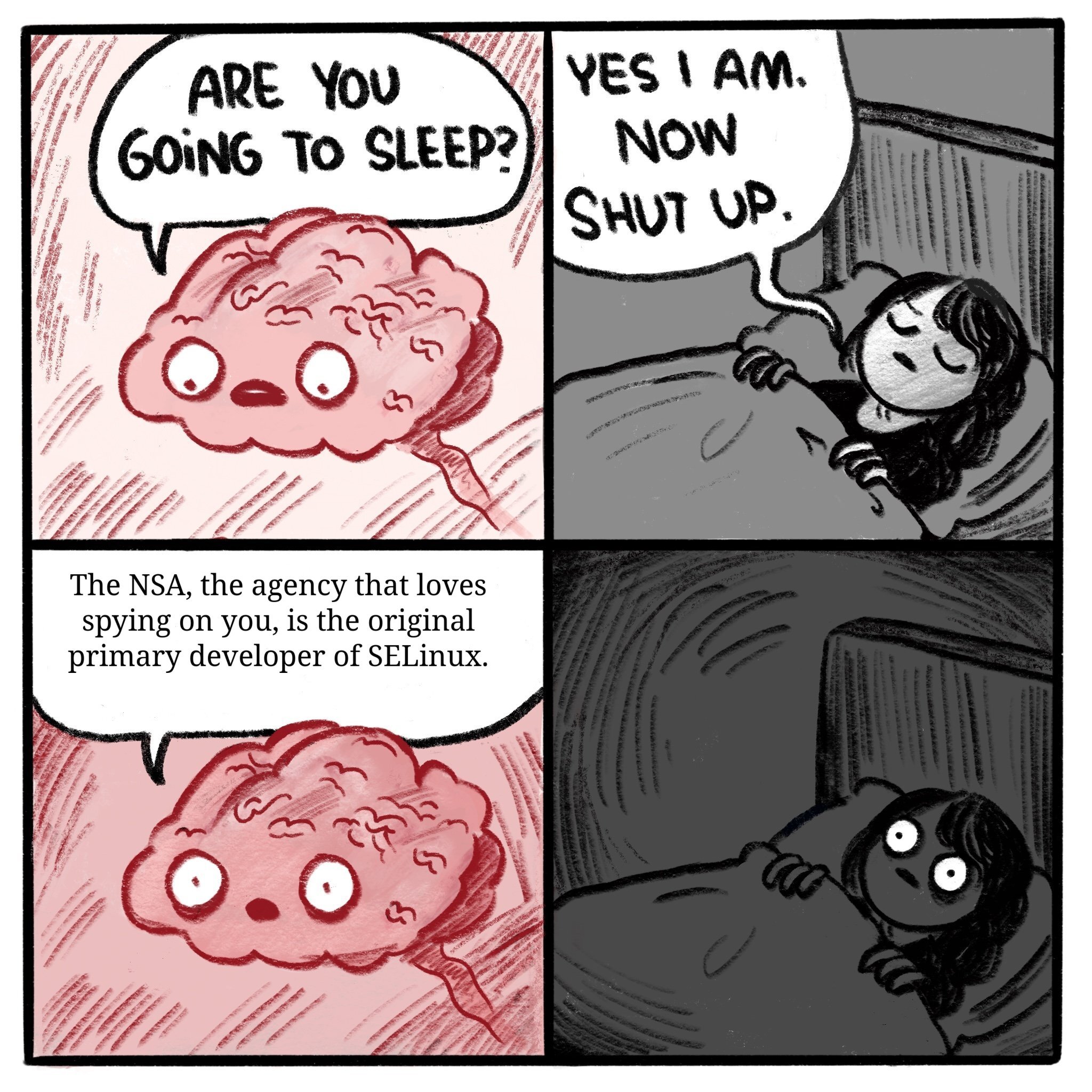this post was submitted on 07 Jan 2025
593 points (96.5% liked)
linuxmemes
21741 readers
1210 users here now
Hint: :q!
Sister communities:
Community rules (click to expand)
1. Follow the site-wide rules
- Instance-wide TOS: https://legal.lemmy.world/tos/
- Lemmy code of conduct: https://join-lemmy.org/docs/code_of_conduct.html
2. Be civil
- Understand the difference between a joke and an insult.
- Do not harrass or attack members of the community for any reason.
- Leave remarks of "peasantry" to the PCMR community. If you dislike an OS/service/application, attack the thing you dislike, not the individuals who use it. Some people may not have a choice.
- Bigotry will not be tolerated.
- These rules are somewhat loosened when the subject is a public figure. Still, do not attack their person or incite harrassment.
3. Post Linux-related content
- Including Unix and BSD.
- Non-Linux content is acceptable as long as it makes a reference to Linux. For example, the poorly made mockery of
sudoin Windows. - No porn. Even if you watch it on a Linux machine.
4. No recent reposts
- Everybody uses Arch btw, can't quit Vim, <loves/tolerates/hates> systemd, and wants to interject for a moment. You can stop now.
Please report posts and comments that break these rules!
Important: never execute code or follow advice that you don't understand or can't verify, especially here. The word of the day is credibility. This is a meme community -- even the most helpful comments might just be shitposts that can damage your system. Be aware, be smart, don't fork-bomb your computer.
founded 2 years ago
MODERATORS
you are viewing a single comment's thread
view the rest of the comments
view the rest of the comments

Only because they use Linux too and had to make it public as Linux is a public, open-source kernel
Not really. Do you know how many proprietary, company-specific extensions and modules there are of the Linux kernel out there?
Loads of companies choose not to contribute their stuff back upstream. I don't know why the NSA did originally in the case of SELinux, but I would guess it had to do with transparency, national defense and not carrying the burden of a module / fork solo. They were also not the only contributors even early on, according to the Wikipedia page
Also, if I recall correctly, there was no other option for MAC back them (no AppArmor or Tomoyo).
Isn't this GPL license violation? GPL clearly states that the license must be preserved
GPLv2 only says that people with access to the binary need access to the source code too. If they only used it internally they'd never have to make it public.